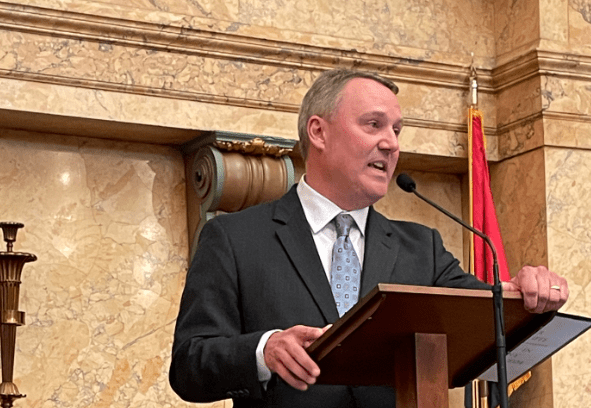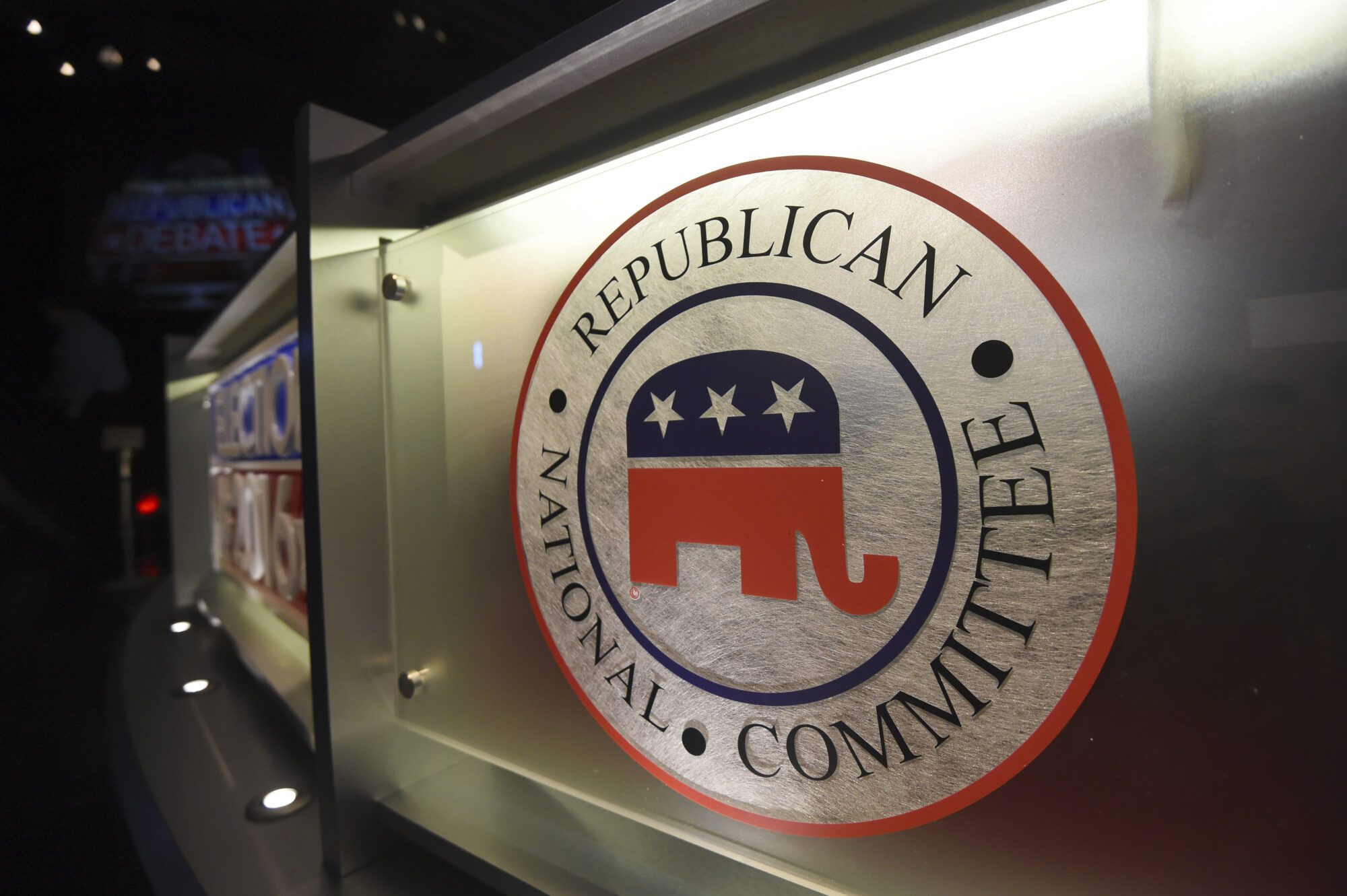
Speaker Jason White, January 2, 2024. (Photo: Sarah Ulmer/Magnolia Tribune)
- While the legislation proposes a work requirement waiver to be approved by CMS, expansion would still take effect without the sign-off.
Mississippi’s Medicaid landscape could be changing based on legislation filed in the Mississippi House. New Speaker of the House Jason White (R) and House Medicaid Chair Missy McGee (R) have introduced a bill that would expand Medicaid eligibility if passed and signed into law.
RELATED: What is the Mississippi Division of Medicaid
Under current law, Medicaid is available to children, pregnant moms, the disabled, the elderly, and parents and caretakers. Eligibility for these classes of recipients varies based on income levels. Children and pregnant moms have some of the highest income thresholds (up to 194 percent of the Federal Poverty Level for Medicaid). Adults with dependents have some of the lowest income thresholds, well under 100 percent of the FPL.
House Bill 1725 would provide eligibility to a new class of recipients, adults without dependents between the ages of 19-65. It would also increase the income threshold for all adults in that age range up to 138 percent of the Federal Poverty Level (FPL).
The legislation directs the Division of Medicaid to enter into negotiations with the Centers for Medicare and Medicaid Services (CMS) in order to obtain a work requirement waiver for coverage. HB 1725’s expansion will take affect even if the work requirement waiver is not granted.
Whether the waiver is granted could impact the number of people added to the Medicaid program under the legislation.
Work Requirement Eligibility
HB 1725 looks to limit the pool of eligible participants in two ways.
First, it directs the Division of Medicaid to request a work or education requirement from the Center for Medicare and Medicaid Services (CMS). If granted, the provision would limit eligibility for adults to someone who is working at least 20 hours a week, is enrolled full-time as a student, or is enrolled full-time in a workforce training program.
The bill does not make eligibility expansion contingent upon CMS granting the work requirement request. This means that if CMS were to deny the request, Medicaid would still be directed to expand the rolls to include adults who do not meet work requirements.
HB 1725 gives the Division of Medicaid until September of this year to obtain the work requirement waiver, to be effective by January of 2025. It provides that if the waiver is not obtained then full expansion up to 138 percent of FPL will occur “with all deliberate speed.”
Mississippi has had a request for a work requirement for its existing Medicaid program pending since 2017, without action by CMS.
During the Trump Administration, thirteen work requirement requests were granted. However, states with those waivers ran into legal challenges and ultimately Arkansas, New Hampshire, and Kentucky all had their work requirements struck down by a federal court on the basis that they applied a limitation inconsistent with the purpose of the U.S. Medicaid statute. These decisions were unanimously affirmed by the D.C. Court of Appeals.
When President Joe Biden took office, CMS withdrew work requirement waivers that had been granted and has not approved any new ones. Today, only Georgia’s work requirement remains from the Trump Administration era. It continues to face litigation.
HB 1725 also seeks to prevent individuals from “voluntarily” dropping private insurance to enroll in Medicaid, if it has been made accessible to them by an employer or on their own. However, that provision would not stop a private employer from dropping coverage or prevent individuals who are currently on the ACA exchange from being moved off the exchange onto Medicaid.
Under current federal law, individuals in non-expansion states earning between 100-150 percent of the Federal Poverty Level are eligible for fully-subsidized private plans on the ACA exchange. When a state expands Medicaid, individuals earning between 100-138 percent of FPL become ineligible for an ACA exchange plan and are shifted to Medicaid.
In 2023, CMS reported that 101,882 Mississippians earning between 100-138 percent of FPL were enrolled in an ACA exchange plan. New CMS data shows that number increased for 2024 enrollment to nearly 140,000.
Remaining Provisions
The legislation in question addresses co-payments for non-emergency use, capping those at $10 per non-emergency visit to an emergency room. However, that fee can be waived if an individual reaches out to a nurse hot line or other organization before arrival.
Individuals aged 19 through 21 will receive all Early and Periodic, Screening, Diagnosis and Treatment program benefits (EPSDT). Anyone over 21 but less than 65 will have access to the state plan benefit package for adults described by the Division of Medicaid.
Non-residents or citizens are not eligible for the coverage.
The bill adds a workforce training caveat for MCO’s, CCO’s PSHP’s and other Medicaid programs. It would require them to increase their workforce opportunities. This includes training, skills building and assisting someone formerly incarcerated for up to three years with finding housing, food, healthcare and employment.
At this time, it is unclear what the total cost to run the Division of Medicaid will be under the House proposal. There is an expected 5% federal match increase in states where expansion is adopted. The bill instructs that the HMW program will be discontinued if the federal match proportion ever falls below 90%.










